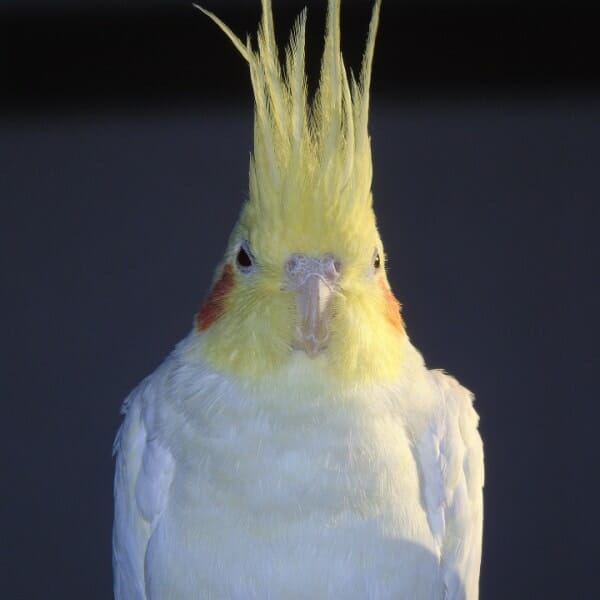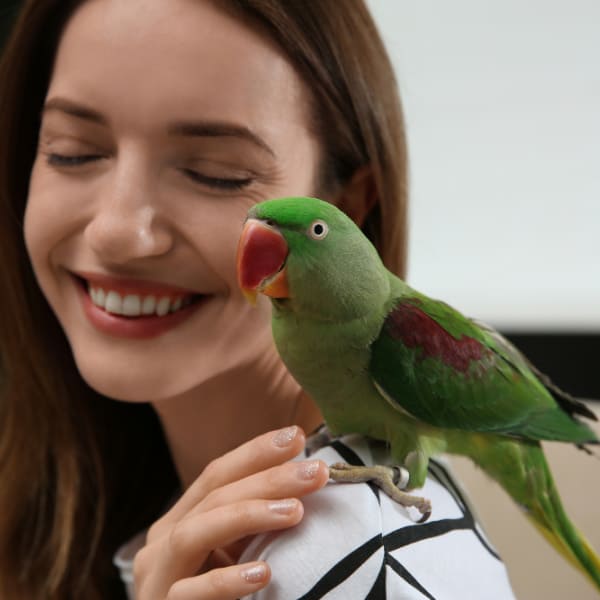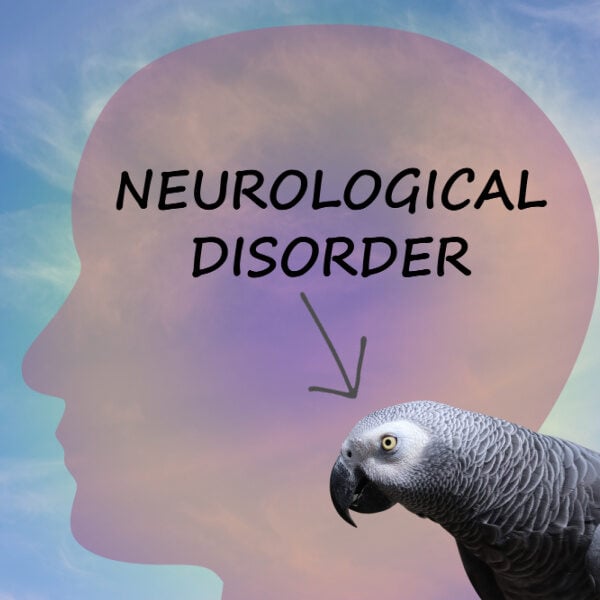Last Updated on by Mitch Rezman
Joanne F. wonders aloud,
Been reading your blog about the effects of Lupron on female birds for egg-laying.
My vet is suggesting these injections for my male white face cockatiel, “Pico”.
Pico is literally like Jekyll and Hyde.
Very loving but can turn on you in a nanosecond.
He is so highly hormonal that almost anything is perceived as a potential mate.
Feet, sneakers, plastic Kind bar wrappers……the list is expanding.
He loves me but if he thinks I am getting between him and a potential mate he will attack, bite over and over again.
He knows all the tenderest parts of me to nail. He got me in the eye once…blood everywhere.
I have to wear safety glasses and large poofy slippers in my house at all times. In this state if I even make eye contact with him he will attack. I was hoping that Lupron would be a solution for him.
He cannot go back to the breeder to just be a bird for the rest of his life as he is so bonded to me.
Nor can he continue to be a pet in his current state.
If there is no alternative, he would have to be put down.
I cannot live with him for the next 20 plus years if he is like this but I love him too much to get rid of him or have him euthanized.
A real catch 22.
Have had birds all my life but never one like this.
Been to 4 vets now and spent many hundreds of dollars.
If he was a dog I could simply have his b**ls cut off.
Do you have anything I could pass on to my avian vet?
Hi Joanne,
To your point ~ Lupron is a poison
Read my blog about how Lupron has sickened and permanently disabled more than 10,000 women
There are zero long-term studies of the effect of lupron and pet birds.
We are strong advocates of light therapy.
In short, it involves locking your bird in its cage for at least 72 hours perhaps even 168 hours leaving a light on the entire time.
The cage should be covered at night but the cover should go over the light so that the bird is exposed to light 24/7 for 3 to 7 days.
This breaks a bird’s circadian rhythm and usually gets them back to normal. You can easily use it on males too that are exhibiting negative/aggressive hormonal behavior
After you tell your Vet that you can cure your pet birds with a nickel’s worth of light. give him a moment to chuckle and tell you how internet voodoo never really works.
Then you can relate to him how I had an hour-long conversation about 10 years ago with dDr. Gregory Harrison the founder of Harrison’s bird food who taught us about light therapy and its uses.
He had been using it for 20 years prior.
We also work closely with the folks at H.A.R.I. who have kept 250 pairs of parrots both domestic and wild-caught for 30 years doing daily research and testing fecal matter 24/7 with a staff of full-time veterinarians and vet techs.
Mark Hagen who founded H.A.R.I has been philanthropic towards Guelph veterinary college whose additional research on light therapy continues to prove its effectiveness (and lack of vitamin D production).
Certain other fundamental measures should be applied as well.
Overnight food should be kept to an absolute minimum barely covering the bottom of the food dish.
If a hen or male believes there might not be enough food to feed babies it will reduce percents to breed.
There can be no dark places like tents in the cage or spending time under the couch all wrapped up in a favorite blanket – all nesting practices need to stop.
To avoid sexual stimulation there should be no touching below the neck and no stroking of the bird’s beak.
Please let us know how this worked for you and what your vet’s reaction was.
Best
MitchR
Author Profile
Latest entries
 Feeding Exotic BirdsDecember 29, 2025How to Switch or Convert Your Bird From Seeds to Pellets: Real-Life Case Studies and Practical Guidance
Feeding Exotic BirdsDecember 29, 2025How to Switch or Convert Your Bird From Seeds to Pellets: Real-Life Case Studies and Practical Guidance Feeding Exotic BirdsDecember 16, 2025A Practical, Budget-Smart Guide to Feeding Birds Well
Feeding Exotic BirdsDecember 16, 2025A Practical, Budget-Smart Guide to Feeding Birds Well Bird EnviornmentsDecember 7, 2025Understanding Budgie Cage Bar Orientation: Myths, Realities & Practical Solutions for Vertical-Bar Bird Cages
Bird EnviornmentsDecember 7, 2025Understanding Budgie Cage Bar Orientation: Myths, Realities & Practical Solutions for Vertical-Bar Bird Cages Feeding Exotic BirdsDecember 5, 2025How Dr. T.J. Lafeber Rewrote the Future of Pet Bird Nutrition
Feeding Exotic BirdsDecember 5, 2025How Dr. T.J. Lafeber Rewrote the Future of Pet Bird Nutrition



